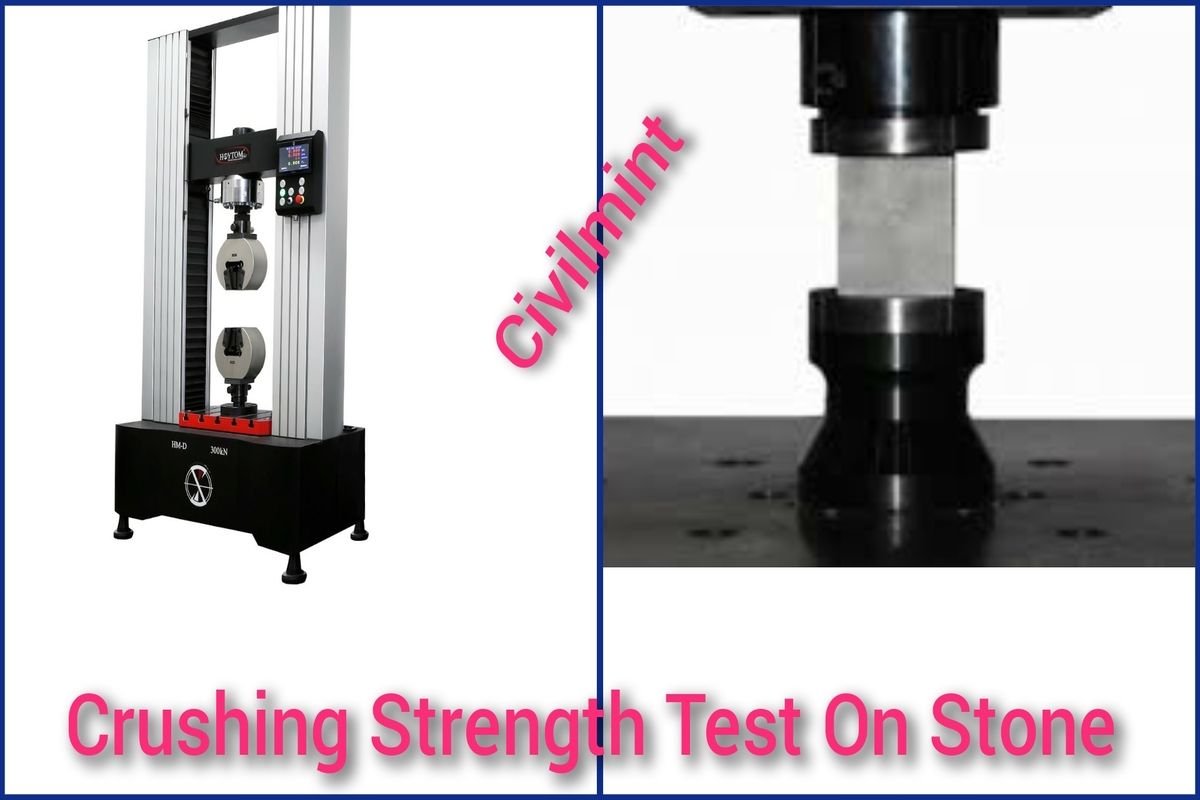Table of Contents
What Is Cushing Strength Test Of Stone?
Crushing strength test of stone is done to check ability of a stone to resist crushing forces. Crushing strength test is performed on cylindrical specimens in a compression testing machine.
The results of the test are useful for evaluating the quality of stones for use in construction, as well as for comparing different types of stones.
In this blog article, I will discuss the crushing strength test of stone in detail.
Let’s start!
Test Procedure
The crushing strength test of stone involves placing a cylindrical sample in a compression testing machine. The machine is equipped with two steel plates, one stationary and the other movable. The movable plate applies a force on the stone in a vertical direction. The force is gradually increased until the stone break.

The test is performed on dry and clean stones. The specimen is prepared by cutting a cylindrical shape from the stone with a diameter of 40mm and a height of 80mm. The ends of the cylinder are then flattened and parallelism is ensured. The specimen is then placed in the compression testing machine with its axis perpendicular to the horizontal axis of the machine.
The load is applied at a constant rate of 14 N/mm² per minute until the specimen fails. The crushing strength is then calculated as the maximum load that the specimen can withstand divided by the cross-sectional area of the specimen. The result is expressed in N/mm².
Factors Affecting Crushing Strength Test
The crushing strength of a stone depends on several factors, including the type of stone, the composition of the stone, the size and shape of the specimen, and the conditions under which the test is performed.
Type of Stone: Different types of stones have different crushing strengths. For example, granite has a higher crushing strength than limestone.
Composition of Stone: The composition of a stone can affect its crushing strength. Stones that contain more quartz are generally stronger than stones that contain more feldspar.
Size and Shape of Stone: The size and shape of the specimen can affect its crushing strength. Larger specimens are generally stronger than smaller specimens. Also, specimens with a larger diameter-to-height ratio are generally stronger than specimens with a smaller diameter-to-height ratio.
Conditions of Test: The conditions under which the test is performed can affect the crushing strength of a stone. For example, if the specimen is wet or has cracks or defects, its crushing strength will be lower than if it is dry and defect-free.
Applications of Crushing Strength Test
The crushing strength test of stone is an important test that is performed to evaluate the suitability of stones for use in construction. The results of the test can be used to determine the quality of stones and to compare different types of stones. Stones with higher crushing strengths are generally considered to be of better quality and more suitable for use in construction.
Summing Up
Crushing strength test is an essential evaluation to determine the suitability of stones for construction purposes.
In this test, a cylindrical stone specimen is placed in a compression testing machine and subjected to a vertical force. The crushing strength is determined by dividing the maximum load that the sample can withstand by its cross-sectional area.
Many factors can affect the test, such as stone type, composition, specimen size and shape, and test conditions. Test results are useful for assessing stone quality and for comparing different types of stone.
Faqs
It evaluates the quality of coarse aggregates used in construction.
Between 10mm and 40mm for accurate results.
